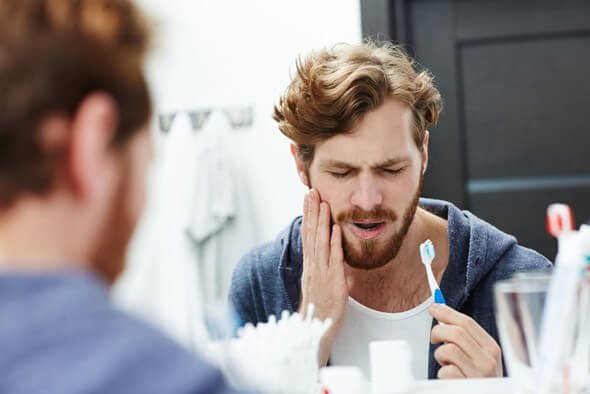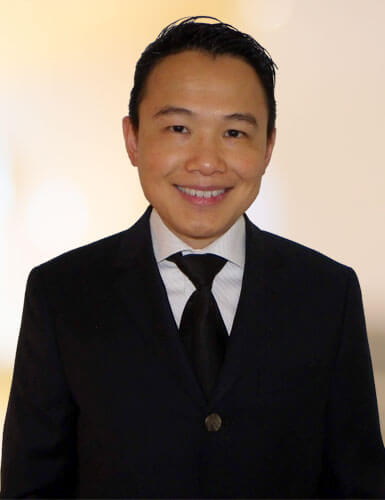How Did I Get This Cavity When I Brush Every Day?!?
Posted: August 4, 2021
Last Modified: June 6, 2022

Every morning and evening, you brush your teeth for exactly two minutes. You might even have a special timer set up to help make sure you’re brushing as long as you should be. You also make sure to floss twice a day as well. Your teeth almost always are clean and free of food debris, and you take pride in how good and healthy they look. However, despite all this care, one day, you feel a twinge in your teeth. Then another. When you make an appointment at your local dentist office, there’s only one explanation: you have a cavity.
“But I’ve taken such good care of my teeth,” you might say. “How in the world did I get a cavity?”
It’s easy to mistake a cavity as shorthand for having bad brushing habits. When you hear that someone has a cavity, your first thought may be, “Well, clearly, they weren’t brushing their teeth as well or as often as they should.” However, cavities aren’t exclusively the result of bad oral hygiene. Even if you’re doing everything your Barrie dentist told you to do, there’s still a good chance that a cavity might develop.
Why Do Cavities Grow in the First Place?
Your teeth have a lot of different parts to them, which is why they’re so strong and sturdy, but the main ingredient in their makeup is minerals. Specifically, they’re mostly composed of hydroxyapatite, which is a kind of calcium phosphate.
No matter how well you brush your teeth, you’re likely to miss at least a few bits of plaque, which is where cavity-causing bacteria live. When these bacteria come into contact with starch or sugar (introduced from the food or drink you consume), they begin to churn out acid. When the acid comes into contact with your teeth, it begins to work away at their enamel, making them weaker, more sensitive, and more susceptible to cavities.
The longer your teeth are exposed to sugary or starchy foods, the more damage the acid can do before your saliva (which actually contains minerals to strengthen your enamel) helps wash it away. So, even if you’re brushing your teeth twice a day, you’re still doing your teeth some damage if you sip a sugary soda over an hour at lunch. Your toothbrush gets rid of food debris, but it can’t fight acid erosion as it happens.
Can You Put Minerals Back Into Your Enamel?
You can’t replace your lost enamel, but you can help protect the enamel you have left. Today, we have scanning technology in our Barrie dental office that can detect little changes in enamel loss, giving you a heads up if you’re losing enamel. You can also use a toothpaste with fluoride in it to help protect your teeth over time.
Could the Time You’re Brushing Be Part of the Problem?
Brushing your teeth is good, but if you’re brushing at the wrong time of the day, it might not be doing as much good as you intended. Here are the best times to brush your teeth throughout the day:
- Morning – A good night’s sleep is essential for your body, but it’s also a prime opportunity for bacteria to multiply in your mouth. Brushing your teeth right after you get up helps remove any bacteria or plaque that might have accumulated overnight, and if your toothpaste has fluoride in it, it makes sure that your saliva will be well-stocked with fluoride for breakfast.
- After Eating – Brushing your teeth after a meal might seem like an easy, common-sense way to prevent food particles from hanging around, but if you do it too soon, you could be hurting your teeth. Always wait at least 30 minutes after you’ve eaten before you reach for the toothbrush. Otherwise, you’ll be brushing away all the good minerals in your saliva and actively damaging your enamel while it’s still weak.
- Evening – Before you retire to bed for the night, give your teeth a final brush. This will dislodge any remaining particles of food and help prevent acid production while you sleep.
Fight Cavities With the Help of Your Barrie Dentist Office
If you’re already brushing your teeth twice a day, you can take pride in the knowledge that you’re already doing more than roughly 50% of the population. However, cavities can be sneaky. You can’t always see them as they grow, which means you may not know they exist until you start to feel pain. If you don’t experience any discomfort from your cavities, they’ll likely go undetected until your next visit to the dentist office, which is why it’s so important to make sure you have regular appointments set up.
At Dr. Elston Wong Dentistry in Barrie, ON, we’ll meet with you a minimum of twice a year to make sure that there aren’t any cavities growing, and that your tooth enamel is in good condition. If a problem does arise, we work with you to identify a solution that aligns with your goals for your oral health. From dental veneers to careful cleaning, our recommendations are designed to accommodate your wishes.
To learn more about fighting cavities with the aid of our Barrie dentist office, give us a call at (705) 721-1143 or send us a message online.


